
Why you shouldn’t worry about AI-powered search — yet.
Hundreds of thousands of words have been spent describing a new era of search that nobody understands. Let me add to them by explaining why you shouldn't worry just yet.
Folks, folks. Calm down. Can we stop panicking about how AI is going to impact our websites? Sure, it will have an impact. But we’re still looking at a largely immature technology, that has yet to prove itself in the marketplace. We’re barely 18 months beyond the Metaverse hype, and now we’re going through the hype cycle all over again. And let’s not even talk about Web3…
Hyped things don't always happen. And they usually take longer than we expect.
At least part of the panic is down to Microsoft — by quickly moving to integrate ChatGPT with Bing, they’ve triggered an arms race, with Google rushing to catch up via Project Magi. Bing, though, has very little to lose. As the distant second in the search wars, it has everything to play for. It can afford to take a gamble on an untested technology. Because we can see a new form of search, it feels real.
And I’m the classic person who should be worried. I make a significant chunk of my income from SEO training and consulting. Google is usually the biggest traffic source for my site. I’ve been thinking about search seriously for over a decade, and keeping track of it for five years longer than that.
Nobody knows what AI means for publishing — yet
I should be fearing for my future. Maybe I should join the rush to churn out think-pieces and webinars on what AI means for editorial search. But I’m not going to — because anything I would write or present would be a guess. We just don’t know how this will play out yet, and anyone who claims that they do is a huckster and a grifter.
More than that, though, the coming changes don’t scare me.
The problem, the endless problem, is that people fixate on the tools, and not on the people using them. And people will determine whether this is a success or not — and how we respond to it. And I'm not going to worry too much until they make that choice.
The human side of the user interface
I suspect AI-driven chat will only impact on a proportion of searches. People don’t just turn to search engines for answers to questions, they also seek reviews, insights, and experiences. To find sites they’re familiar with again. The number of people who only want AI-spawned generic pablum to answer a quick question is small. Any search engine that forgets that is doomed to fail.
The idea that the whole breadth or depth of the internet in all its wild and diverse oddness can be replaced by a single chat window is a dull and reductive way of seeing the world. It reduces the complexity of the web to mere answers, and that would be a mistake.
Imagine if Google became a pure chat experience. What would that create? A gaping void in the market for a search engine to fill. Search engines were invented to help people find information, reading, and entertainment on the internet, not just to answer questions. Any LLM integration into search should help the “answers to questions” experience without undermining the “finding something to read” experience.
Today’s search handles both. And tomorrow’s will need to do both as well.
AI in search — some examples
I think search engines are aware of that. Even Bing’s ChatGPT integration has been slightly deprioritised in the current beta. Let me give you two examples that illustrate the point.
Explain this to me
For example, I did a search for the mysterious “grim reaper” who showed up briefly during the coronation over the weekend.
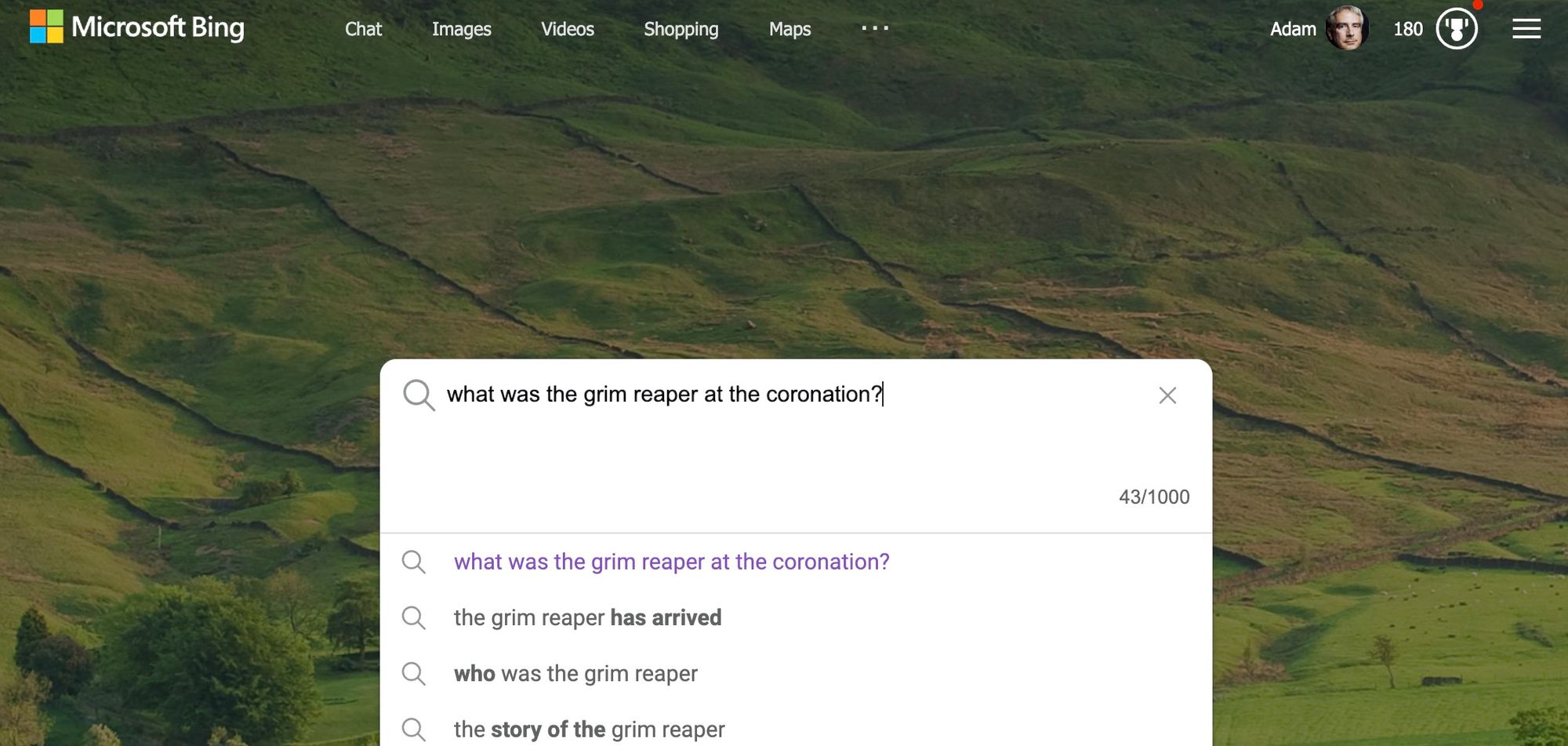
Bing points me towards the answer without ever triggering the ChatGTP integration.
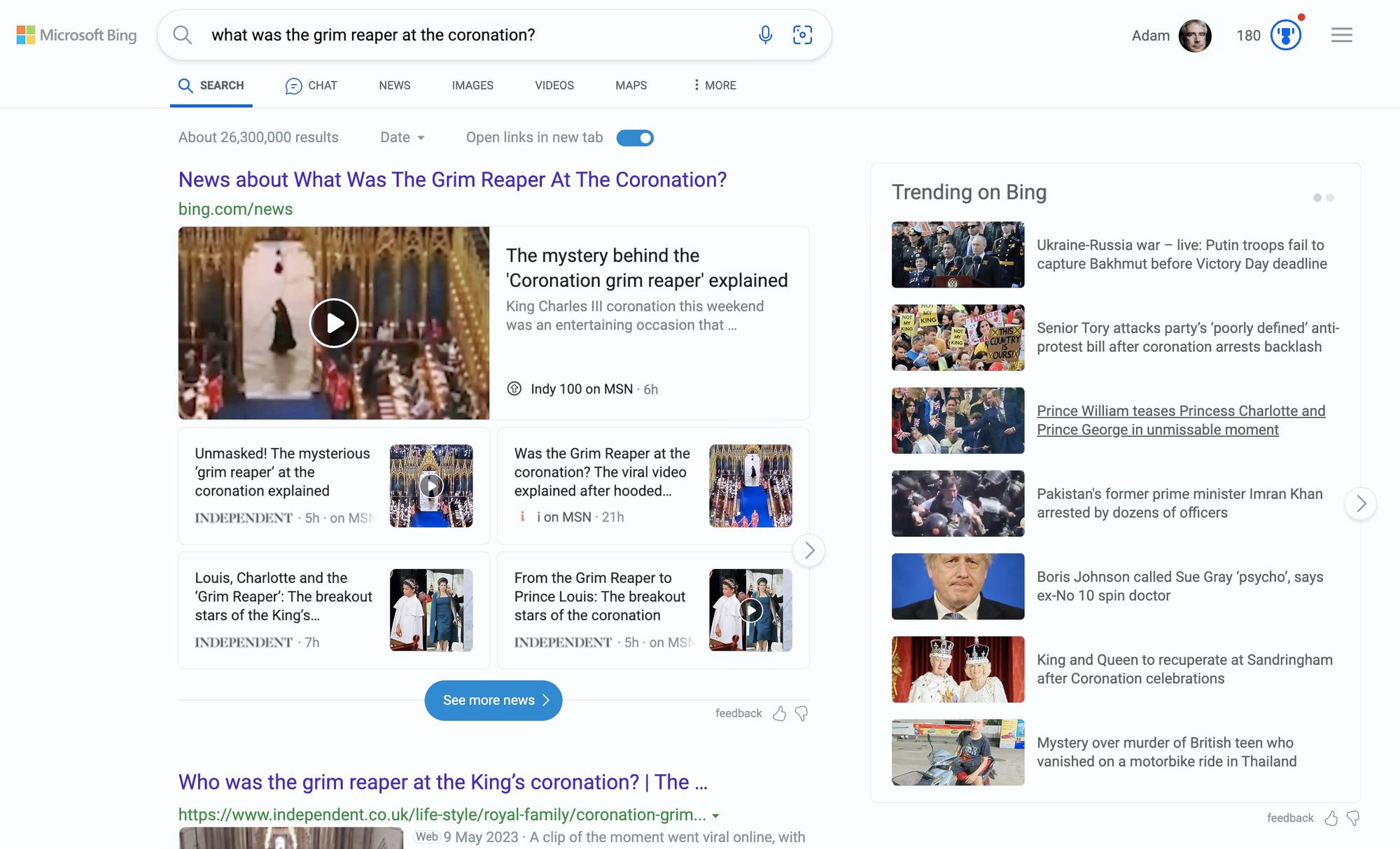
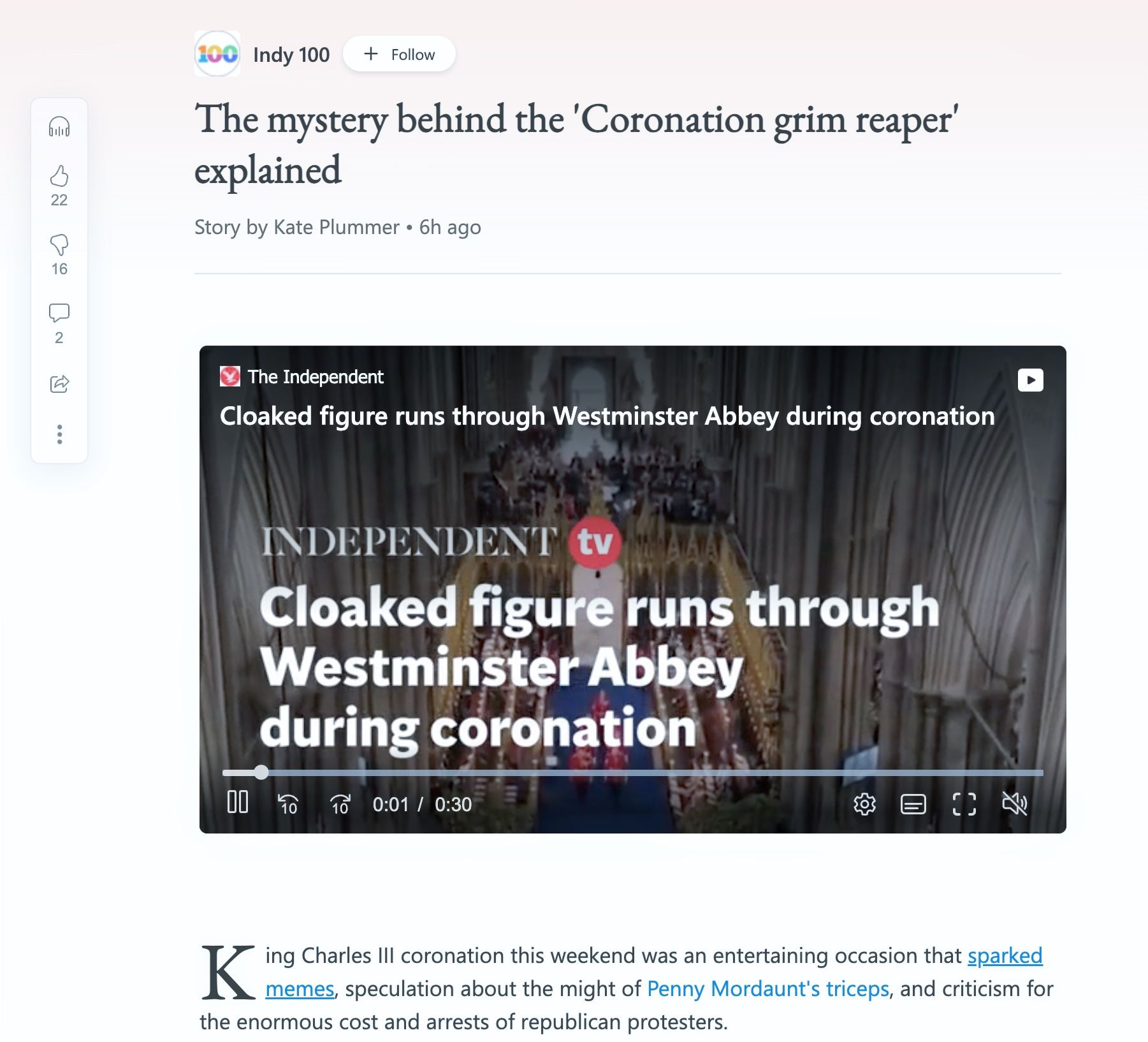
Help me solve this problem
However, I also have a wee problem with my bike:

What I need is… a bicycle repair man. So, let’s do a search…
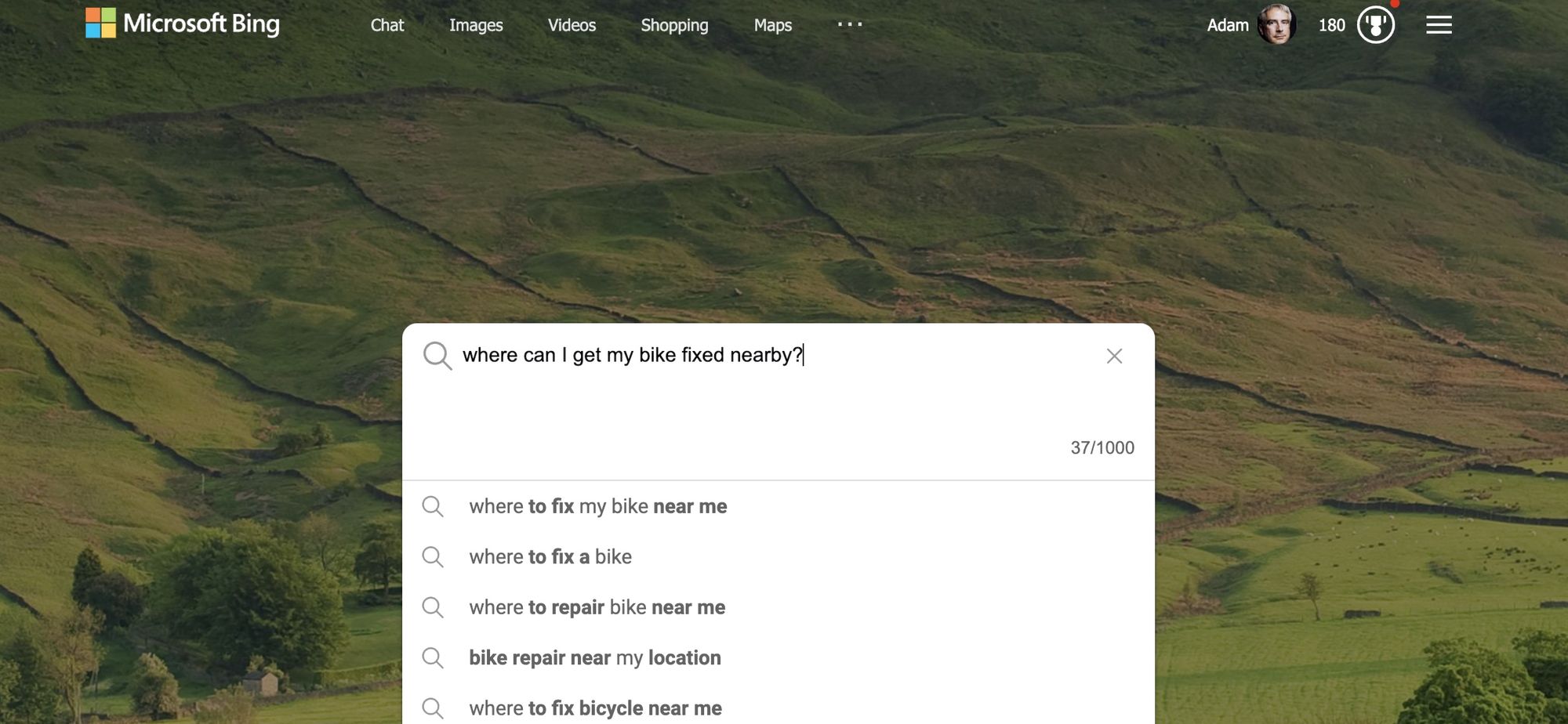
This time, the query does trigger ChatGPT, but it takes a while to appear:
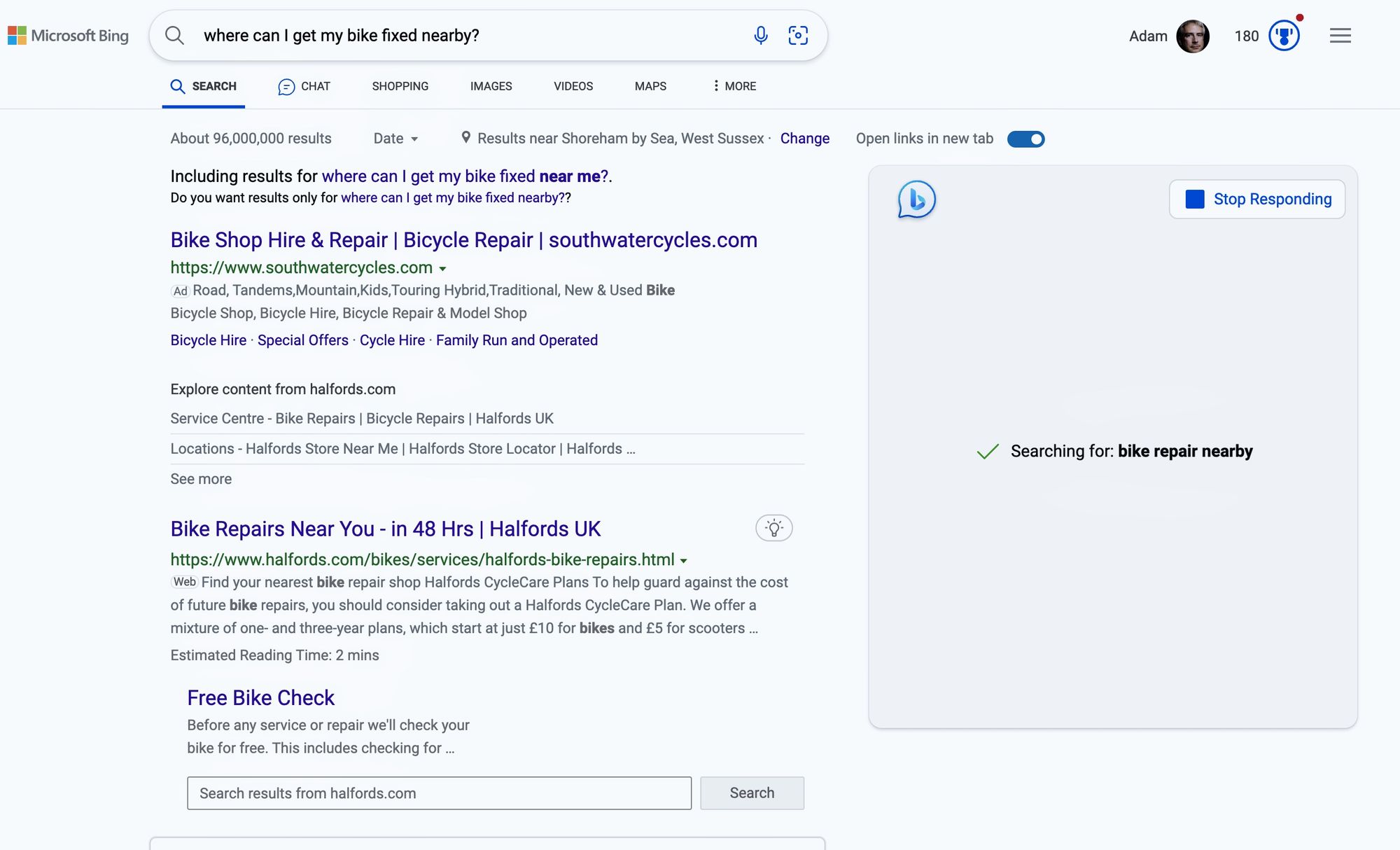
When it actually arrives, it gives me a range of useful options:
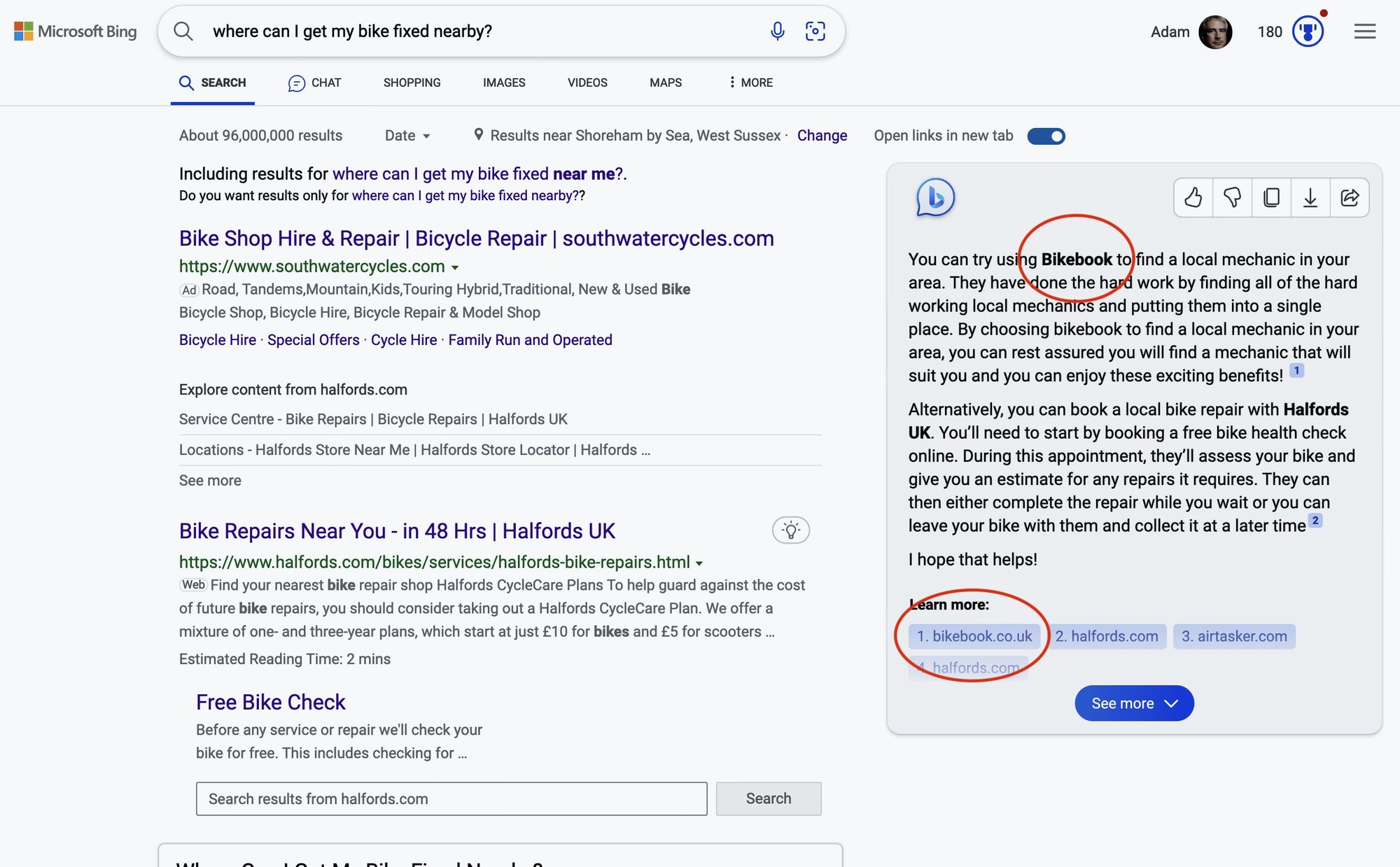
And there we are:
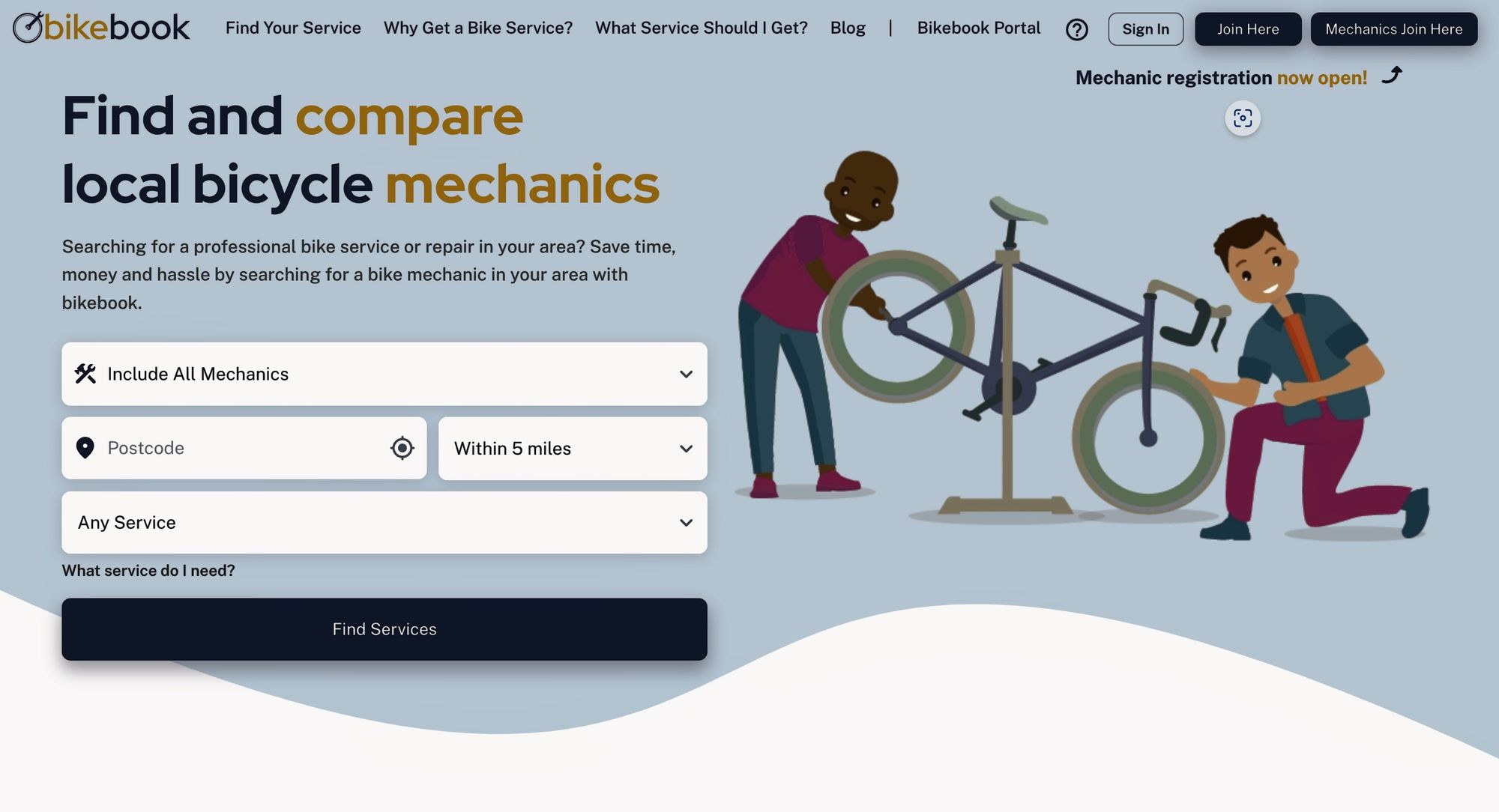
Now, if I was a commercial SEO working on optimising local businesses for search, I admit I'd be a bit more concerned. But, right now, I'm not seeing the AI intervening in core editorial search intents.
That could change — but would it really deliver a better user experience for the searcher? That's the big unknown right now.
So, what should journalists do about AI search?
Look, we shouldn't panic about this — but neither should we ignore it.
Here’s my suggestions:
- Don’t optimise for simple queries — because Google is already answering those directly. AI will be even better at doing that. Simple questions with simple answers are no longer a good SEO target.
- Lean into individual expertise — AI synthesises information from across the web, often inaccurately. People will bias towards expert copy from people with real experience, even if it takes a few bad experiences for them to learn the lesson.
- Work hard to convert search visitors to regular visitors — always good advice.
- Don’t rush to fill your site with AI content — because the search engines are already looking at ways of down-ranking AI content. If you're going down that path, make sure you focus on reader value, and on subjects where SEO isn't an essential acquistion source.
- Watch and learn…
Search isn’t going to transform overnight. But it will change, as it always has. And, as ever, the people who win will be those who mix a ruthless focus on reader need with the agility to adapt to new technology as it emerges.
Chill. But be ready.
Further reading
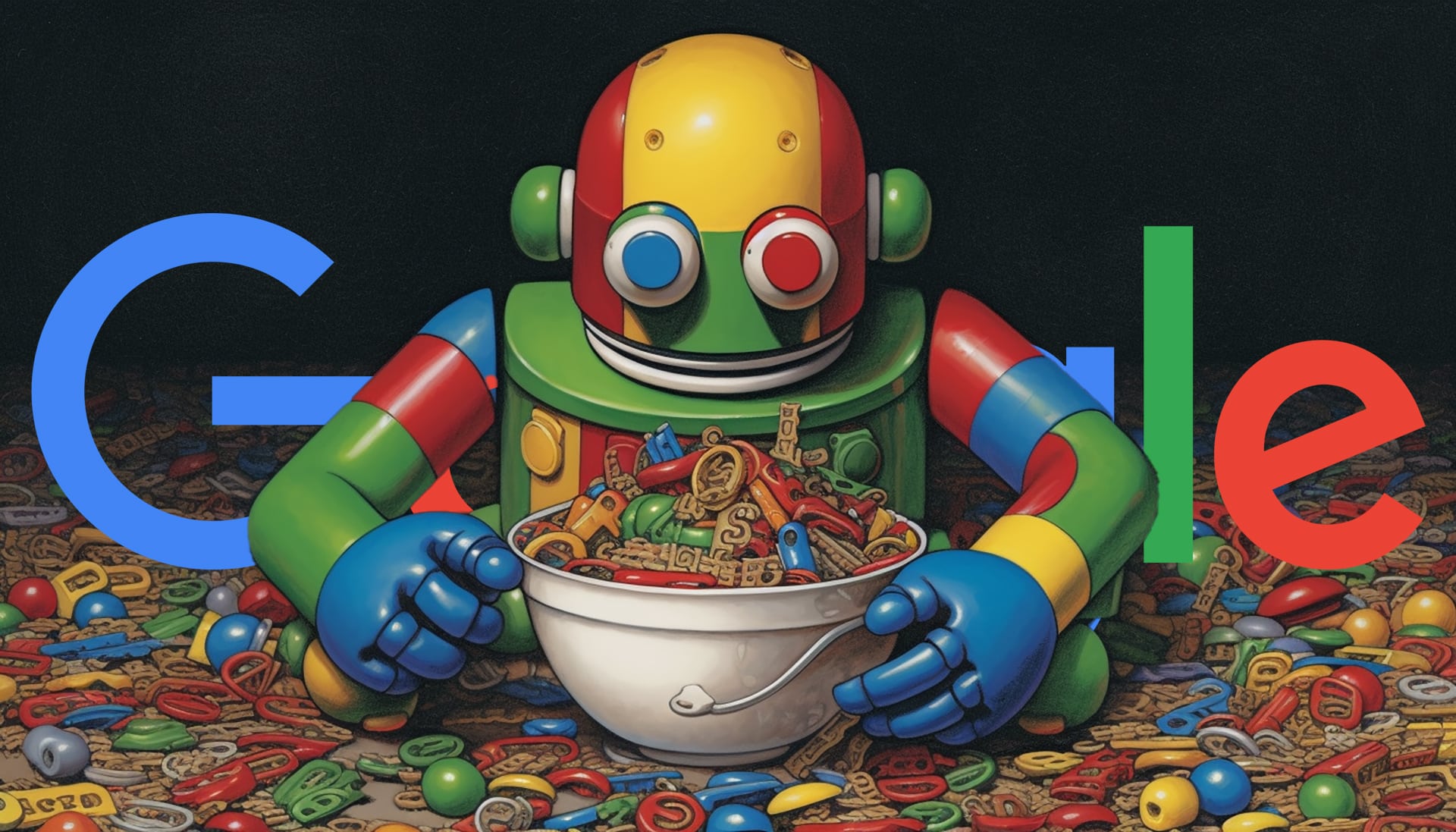


Sign up for e-mail updates
Join the newsletter to receive the latest posts in your inbox.












